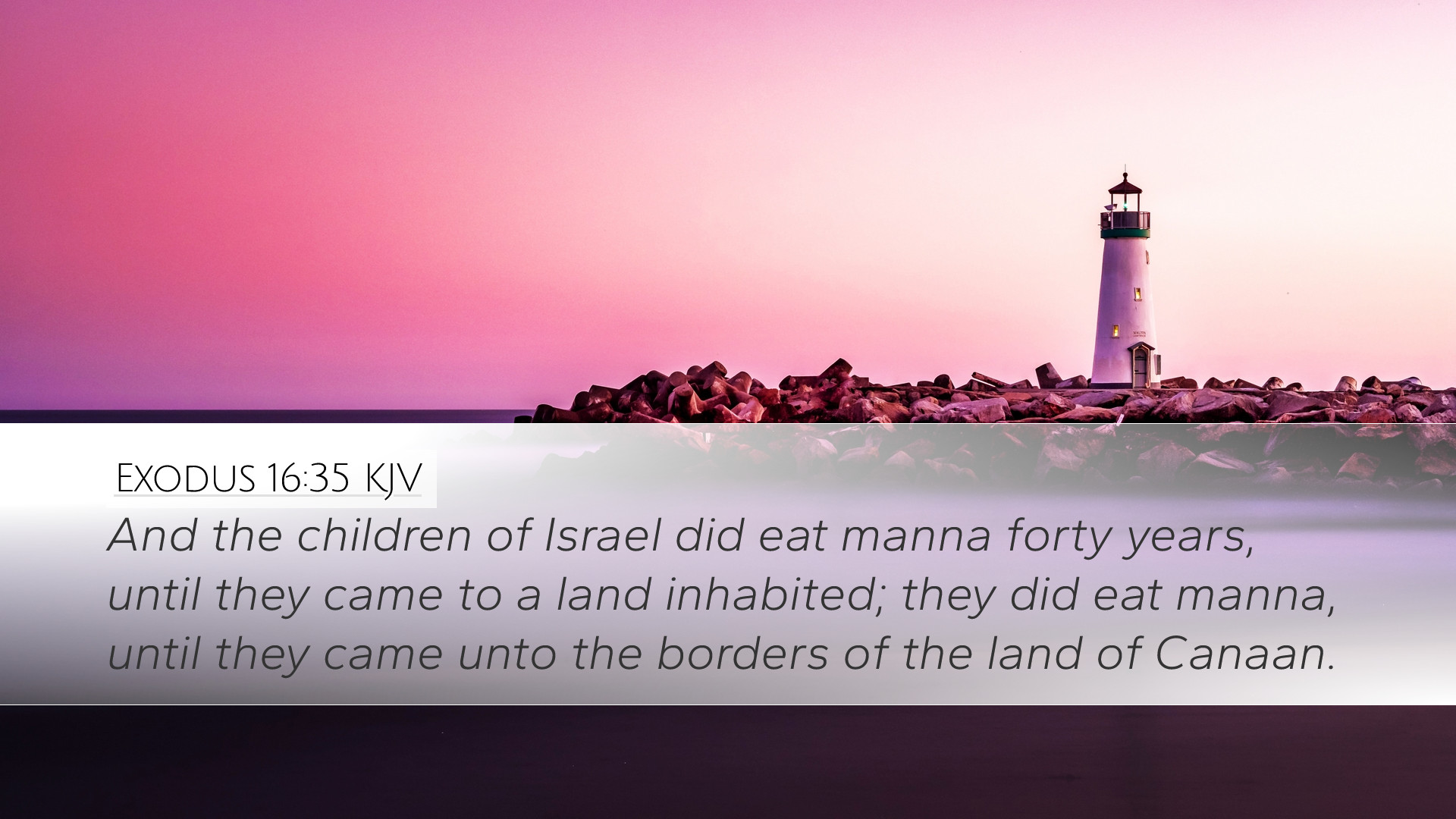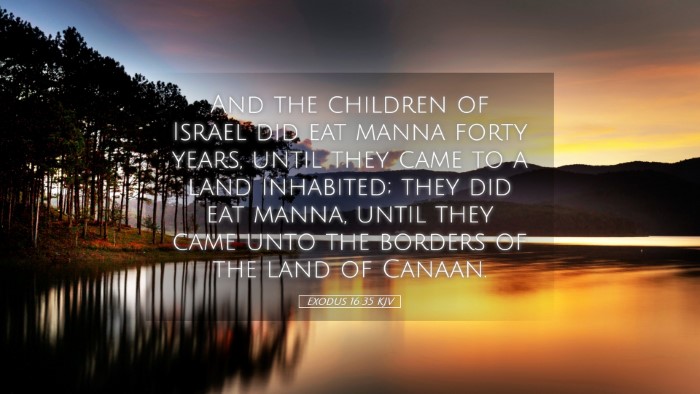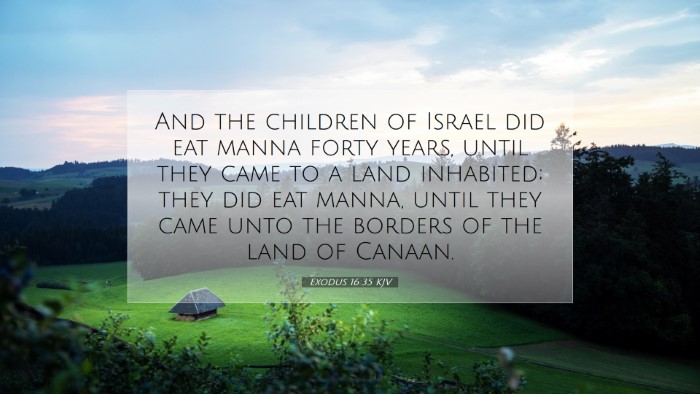Exodus 16:35 Commentary
Verse Reference: Exodus 16:35 - "And the children of Israel did eat manna forty years, until they came to a land inhabited; they did eat manna, until they came unto the borders of the land of Canaan."
Overview
The passage of Exodus 16:35 encapsulates a significant aspect of God’s provision and faithfulness towards the Israelites during their forty years of wandering in the wilderness. The mention of manna, a miraculous food provided by God, signifies not just physical sustenance but also spiritual nourishment, underscoring God's continual presence and provision.
Theological Themes
- God’s Provision: The manna is emblematic of God’s provision for His people in times of desperation. Matthew Henry notes that this provision lasted for decades, illustrating God's unwavering support and care.
- Divine Sustenance: Albert Barnes points out that the Israelites depended on manna exclusively for their sustenance during their journey, highlighting the idea that God provides everything we need. This reflects our dependence on divine sustenance throughout our spiritual journey.
- Journey to the Promised Land: Adam Clarke emphasizes that the duration of eating manna until reaching Canaan signifies the transitional phase of the Israelites, pointing toward the ultimate fulfillment of God’s promise.
The Symbolism of Manna
Manna serves not only as a physical sustenance but also carries rich symbolic meaning within the scriptural narrative:
- Type of Christ: As discussed by Matthew Henry, the manna is often viewed as a typological foreshadowing of Christ, the Bread of Life (John 6:35). Just as the Israelites relied on manna, believers are called to rely on Christ for spiritual nourishment.
- Daily Dependence: Manna must be gathered daily, which symbolizes the necessity of daily spiritual renewal. Barnes asserts that this requires faith and obedience to God’s instructions, paralleling the Christian life where believers must seek God daily for their needs.
- Grace and Abundance: The sufficiency of the manna illustrates God's grace. Clarke notes that its abundant provision exemplifies God's readiness to provide for all our needs — not merely in scarcity but with bounteous grace.
Lessons for Believers
This passage offers several reflections applicable for modern believers:
- Faithfulness in Trials: The Israelites faced hardship, yet through faith and obedience, they received God's provision. This encourages believers to trust in God's timing and provision even in trials.
- Daily Relationship with God: The need to gather manna daily teaches the importance of maintaining a daily relationship with God through prayer, scripture, and communion.
- Anticipation of the Promised Land: Just as the Israelites had to persevere towards Canaan, believers are reminded to look forward to the ultimate fulfillment of God’s promises in their lives.
Conclusion
Exodus 16:35 presents an extraordinary account of God's faithfulness that resonates throughout Scripture. As the Israelites consumed manna for forty years, they were constantly reminded of God's presence and provision. This passage not only reflects on historical events but also invites contemporary believers to draw from its lessons of faith, reliance, and anticipation of the promises yet to be fulfilled. In understanding this Scripture, scholars, pastors, and students alike are encouraged to explore the fullness of God's grace and sustenance available through Christ.


